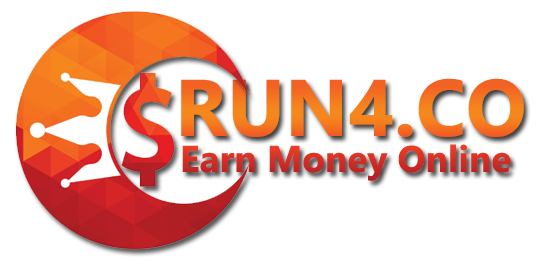
A blog is a type of website that features regularly updated content, such as articles, videos, or images, organized in reverse chronological order, with the most recent content appearing first. Blogs are typically maintained by an individual or a small group and cover a wide range of topics such as personal experiences, news and current events, hobbies, or specific industries.
Blogs can be seen as a form of online journal or diary and provide a platform for people to share their thoughts, ideas, and experiences with a wider audience. Blogs also allow for interactive communication, as readers can leave comments and engage in discussions with the author and other readers.
Blogs can be set up for free on platforms such as WordPress, Blogger, or Wix, and can be self-hosted or hosted on these platforms. The content on a blog can be created by the blogger, guest bloggers or by a team of writers. Blogs can also be monetized using various methods such as display ads, affiliate marketing, sponsored posts and selling products or services.
How you Can Earn money With Blog
Blogs can be a great way to earn money online by providing valuable content and building an engaged audience. Here are some ways to earn money through blogging:
- Advertising: Place ads on your blog, such as Google AdSense, and earn money every time someone clicks on an ad.
- Affiliate marketing: Promote products or services on your blog and earn a commission for each sale or lead that you generate.
- Sponsored posts: Write sponsored posts for brands and earn money for promoting their products or services.
- Selling products or services: Use your blog as a platform to sell your own products or services, such as e-books, courses, or consulting.
- Membership or subscription-based content: Create exclusive content or perks for members or subscribers and charge a fee for access.
- Crowdfunding: Use platforms like Patreon, Kickstarter, or Indiegogo to raise money for your blog.
- E-mail marketing: Build an email list and use it to promote affiliate products, sponsored posts or sell your own product and services.
It’s important to keep in mind that earning money through blogging takes time and effort, and it’s not a get-rich-quick scheme. Building a successful blog requires creating valuable content, growing an engaged audience and monetizing it in a way that aligns with your goals and values.
How To Make aFree Blog?
Here are the steps to create a free blog:
- Choose a blog platform: Popular free blog platforms include WordPress.com, Blogger, and Wix. Each platform has its own set of features, so be sure to research and compare them to find the one that best fits your needs.
- Sign up: Once you have chosen a platform, sign up for a free account. This will usually require you to provide some basic information such as your name and email address.
- Choose a design: Most platforms offer a variety of designs or templates for you to choose from. Select a design that is visually appealing and fits the theme of your blog.
- Customize your blog: Once your design is chosen, customize your blog by adding pages, menus, and widgets. You can also add your own logo and branding.
- Create content: Start creating content for your blog. This can be in the form of text, images, videos, or audio.
- Promote your blog: Share your blog on social media, and engage with other bloggers in your niche to build a following.
- Monetize your blog: Once you have built an audience, you can start monetizing your blog by displaying ads, affiliate marketing, sponsored posts, or selling products or services.
It’s important to note that while creating a blog on these platforms is free, some of the features, customizations and designs may require a payment. Also, keep in mind that having a free blog may come with limitations such as less control over design and monetization options, and displaying ads from the platform you are using.
How to Make a professional Website
Here are some steps to create a professional website:
- Define your goals and target audience: Before you start building your website, it’s important to define your goals and target audience. This will help you determine the type of content and features that your website should have.
- Choose a domain name and hosting: Choose a domain name that is relevant and easy to remember, and a hosting service that offers the necessary resources and support for your website.
- Select a website builder or Content Management System (CMS): You can choose a website builder such as Wix, Weebly, Squarespace, or a CMS such as WordPress, Joomla, and Drupal. Each option has its own set of features and capabilities, so be sure to research and compare them to find the one that best fits your needs.
- Design your website: Use a pre-made template or create a custom design for your website. Make sure it is visually appealing and easy to navigate.
- Add content: Add relevant and high-quality content to your website, including text, images, videos, and other multimedia.
- Optimize for search engines: Optimize your website for search engines by including relevant keywords, meta tags, and descriptions, and creating a sitemap.
- Test and launch: Test your website to ensure that all the links and features are working properly and that it is compatible with different browsers and devices.
- Promote and maintain: Promote your website through social media, search engine optimization, and online advertising. Regularly update your website and monitor its performance to ensure it remains current and relevant.
A professional website requires planning, design and development skills, and a bit of an investment. Hiring a web developer or a web development agency will give you more control over the design, features and functionality of your website, and will help you create a website that is tailored to your specific needs and goals.
How Much Money We Can Earn With Blog or Website?
The amount of money you can earn with a blog or website can vary greatly depending on several factors such as the niche, traffic, and monetization methods you choose. Some websites and blogs may earn very little, while others can earn significant amounts of money.
It’s important to note that building a successful blog or website takes time, effort, and patience. It’s not a get-rich-quick scheme, and the earnings will depend on several factors such as the niche, the amount of traffic, and the monetization methods you choose.
Some common monetization methods include:
- Advertising: such as displaying ads on your website, such as Google AdSense, and earn money every time someone clicks on an ad.
- Affiliate marketing: promoting products or services on your blog and earning a commission for each sale or lead that you generate.
- Sponsored posts: writing sponsored posts for brands and earning money for promoting their products or services.
- Selling products or services: using your blog or website as a platform to sell your own products or services, such as e-books, courses, or consulting.
- Membership or subscription-based content: creating exclusive content or perks for members or subscribers and charge a fee for access.
It’s also important to note that the earning potential can be influenced by other factors, such as the niche, competition, and the level of engagement of the audience. For example, a blog in a highly profitable niche with a large and engaged audience may be able to earn more than a blog in a less profitable niche with a smaller audience.
It’s also important to note that the earning potential can vary greatly depending on the amount of traffic your website or blog receives and the monetization methods you choose. A website or blog with a large amount of traffic can earn more through advertising and sponsorships, while a website or blog with a smaller audience may earn more through affiliate marketing or selling their own products or services.




